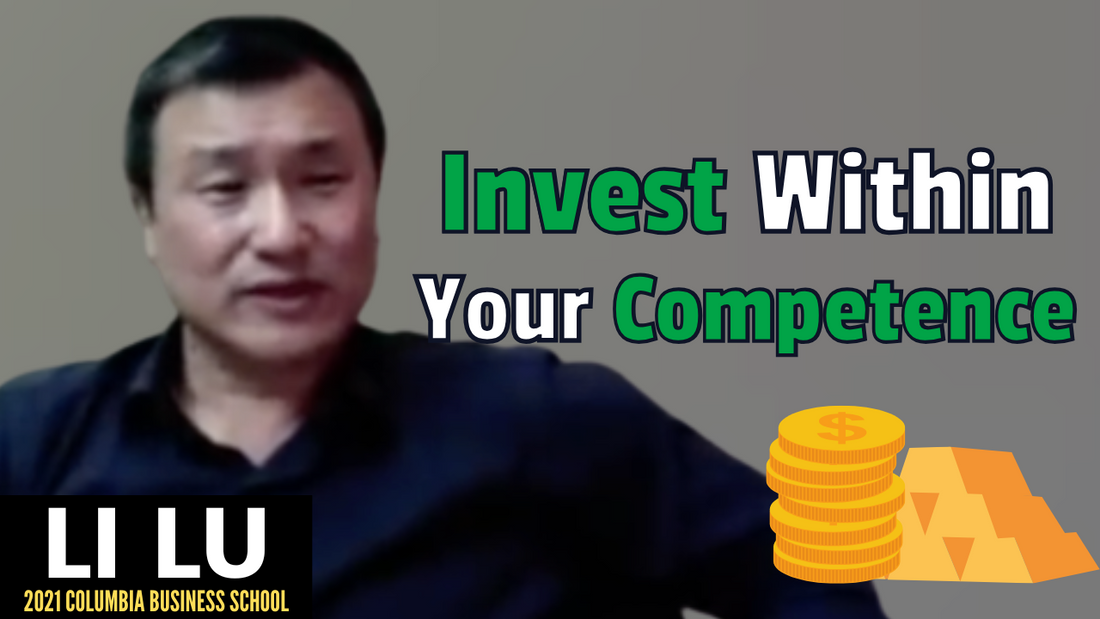
What Makes Li Lu Different From Other Investors? | CBS 2021【C:L.L Ep.5】
[Transcript]
BRUCE GREENWALD: As of today, how do you view this differently, would you say from most other investors? Are there things that you look at specifically? Are there ways that you approach companies?
Now, I’ll tell you the thing that when I started investing with you, and I’m honored to say that I made a lot of money doing it, that appealed to me was what you mentioned in your introduction, which is small – The small businesses or small markets are necessarily markets we have to get a big share because one firm can dominate.
And that’s not something that most investors look at. So in what other ways do you do things differently from most other value investors and investors?
LI LU: Well, you’re right. You invested with me or you begin to invest in me. Thank God you’re still with me. (Laughter) So thank you for your continued trust and confidence.
No, back then we were looking for smaller businesses because those are the businesses I feel I can understand them. And as we evolve, we began to look for big businesses that we can also understand. The bigger business does come with a whole set of advantages, that if they are right in a sense, they also come in with a whole bunch of problems.
And so we’re not really looking at just big or medium or small. Size is one consideration, but it’s not the most important, certainly not a determining factor when we’re looking for businesses.
There are big businesses because of a certain dynamic are still growing at a robust pace that are becoming even more entrenched as they become bigger. And they still have long runs of growth. So that just exist. You know, the most recent phenomenon of the technology platform, because of the network effect, some of the business are fitting that characteristics.
Now, they don’t necessarily always grow forever, but they have been growing for a long, long time and likely to continue for some time. And so just the size itself is certainly not the most determining factor.
BRUCE GREENWALD: But then what other dimensions do you do things differently today than other investors who are less successful? (Laughter)
LI LU: I don’t spend my time studying a hundred people doing that. We spend most of our time studying industries, study specific companies. We’re looking for the ones who are already successful. Try to answer what really make them successful. Can that success be continued? And some of the time we have answers and some of the time we don’t. We just continue to really study them and continue at it, until we have an answer.
I think one thing that really that is always important for us is this intellectual honesty, basically knowing what we really don’t know. What we do know and what we don’t. In other words, if we claim a circle of competence, we have to understand the edge of the competence. You have to know what is falls in and what is falls out. You have to be very honest with yourself.
So we really insist on knowing inside and out a particular businesses, to the point we’re able to predict it’s outcome, for example, in the next 10 years. At least I want to know, at worst case scenario, what the business would look like 10 years from now. And so we do have a long-term horizon in terms.
We can’t really predict it forever, but I want to see whether I can predict with a very high degree of confidence, 90% of confidence, that at a minimum what the business will look like in 10 years under all different contingencies.
And most of the time by the way, we don’t have an answer and we just keep studying and keep at it. Sometimes we study for years and years before we see, okay, we really get it. And then we wait for the price to come to our striking zone, and a lot of the time they don’t. And so that makes our selection very, very difficult.
And so when we do select them, we tend to own them for a very, very long time because the businesses that are really good and we really fully understand are very rare. You know, how do you mean you really do understand that. So anything that we would own, we would buy a lot more as they go down.
BRUCE GREENWALD: How do you – sorry go ahead.
LI LU: Yeah if they go down 50% to 60% we buy more, so that really gives you a measure of our definition of whether we understand them.
(Source: https://youtu.be/FiHrWy2jGbA)
